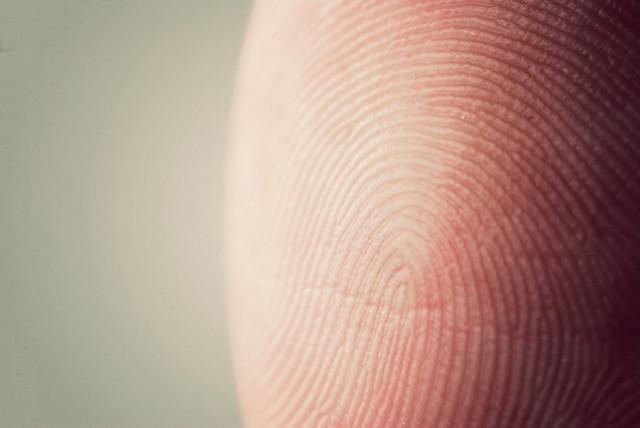The Beat
Poland amends surveillance legislation
Polish president Andrzej Duda has approved new legislation to increase the government’s surveillance powers which will loosen the legal framework on surveillance by law enforcement and expand access to citizens’ digital data, including communication and internet records. That development is the latest in an on-going issue over increased surveillance capability, with protests making headlines last month against the proposed legislation. The Venice Commission, the Council of Europe’s advisory body on constitutional matters, is currently visiting Warsaw to discuss the changes and prepare an opinion submission for its plenary session next month, based on concerns from Poland’s ombudsman that parts of the legislation could be unconstitutional.
Arms imports in the Middle East and North Africa: CSIS Report
CSIS recently released a report on the patterns of arms imports in the Middle East and North Africa. The study provides an overview of the arms import statistics for countries in the two regions and concludes that the US and Russia continue to dominate world sales of conventional arms. The report examined the findings of the US Congressional Research Service report published late last year which used declassified US intelligence estimates in its analysis.
CT Scan
The pitfalls of US Kurdish reliance in countering Daesh
A report from the Institute for the Study of War has outlined two major drawbacks of US reliance on Kurdish forces as a key ground partner to counter Daesh, threatening the long-term success of the US’s anti-ISIS campaign and broader regional security objectives. The first pitfall is the affiliation of Kurdish fighters with the Kurdistan Worker’s Party, a designated terrorist entity, which threatens to deter Turkey from deeper cooperation with the anti-Daesh campaign. And the second is that Kurdish expansion risks inflaming ethnic tensions in Syria and Iraq as the Kurdish obtain relative empowerment at the expense of other groups, often Sunni Arabs, impeding regional stability.
National Security V the Human Right to Family Life
The daughter-in-law of convicted terrorist Abu Hazma has received a helping hand from the European Court of Justice (ECJ) advocate general who ruled that the UK cannot deport her as she doesn’t pose a ‘serious’ threat to society. The woman is under threat of deportation for a crime involving smuggling a cell phone and sim card during a prison visit to her husband. The ECJ made the decision on the grounds that it would deprive her of the human right to family life with her son, a British national. Read more here.
Checkpoint
Warning shots fired at a North Korean vessel
On Monday South Korean naval forces fired warning shots and broadcast messages via loudspeaker at a DPRK vessel that travelled beyond the de-facto maritime ‘Northern Limit Line’ boundary in the Yellow Sea. Although such incursions aren’t uncommon, the event has heightened tension in South Korea which remains in a state of high alert since North Korea’s internationally condemned testing of illegal long-range ballistic missile technology, and its fourth nuclear test a month earlier.
Every touch leaves a mark
Efforts to increase border security in Singapore have begun, as Senior Minister of State for Home Affairs Desmond Lee announced on 27 January that all travellers going through Singapore will have their fingerprints taken as of June this year. Every day, as many as a half a million people go through Singapore’s checkpoints, which includes one of the world busiest land checkpoints—the Woodlands checkpoint. Serving as the first line of defence against ‘serious and persistent’ terrorism threats, the initiative will allow Singapore’s Immigration and Checkpoints Authority to confirm travellers’ identities prior to entering the country.
First Responder
Work begins on a Zika vaccine
Biometrics and pharmaceutical companies around the world have begun work on developing a Zika vaccine, with the World Health Organisation describing the virus as being of ‘top urgency’. The WHO issued a call to interested parties on 5 February to submit potential products for emergency quality assessment. At least 12 groups are currently working on vaccines and trials could start in the US by as early as the middle of this year. Scientists hope that Zika’s similarities with yellow fever, dengue and West Nile virus might mean that a similar approach could be taken in the development of a vaccine, although it’s unlikely to be widely available for a few years.
India’s new guidelines for disaster warnings
India’s Home Ministry has issued new guidelines on disaster warnings and the appropriate response of relevant authorities. As part of the updated guidelines, the Prime Minister’s Office and Cabinet Secretariat will be informed every three hours on the developing situation of any disaster characterised as ‘Red’ and every 12 hours for disasters characterised as ‘Orange’. Police personnel will be deployed to areas deserted after a disaster to ensure the safety of property and a special police task force will be operationalised after disasters to look for missing persons, in an attempt to counteract human trafficking. For some background info on disaster response in India, check out the Indian Home Ministry’s 2011 report.
